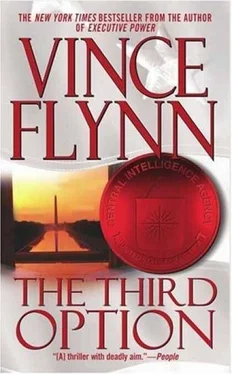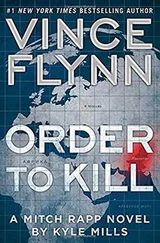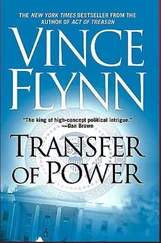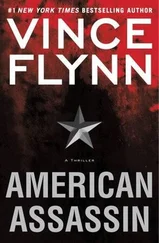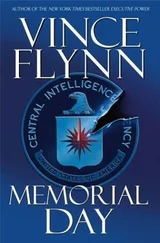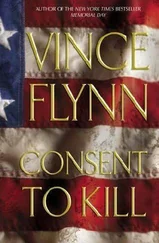The door to the director's office opened, and Jonathan Brown entered. The deputy director of Central Intelligence, or DDCI as he was known, was the second in charge at the Agency. In theory, the four deputy directors reported to hin1, and he reported to the director himself, but Salmen had never played that game. He went right to the director when there was a problem. Brown had shown some irritation with this, and Salmen knew the second Stansfield was gone, his ass was grass. Until then, he would try to keep the bureaucrat's attention focused on him and off Kennedy.
Brown sat at the head of the table and looked over the attendees with his usual dramatic flair. Because of the sensitivity of most of the things Kennedy worked on, she rarely reported to the DDCI. Kennedy did not have a problem with Brown. The man was more than talented enough to handle his job. Under different circumstances, he might even have made a good director of Central Intelligence. But in the end he was an outsider, a former federal prosecutor and judge. He owed his job at the CIA to a handful of politicians on the Hill who lobbied for him. His loyalty was to them and not to the Agency.
Kennedy was invited to these types of meetings more than she would have liked. Within the four directorates were thirty-plus offices or groups. Of those, Counterterrorism was the one that garnered the most attention. Kennedy had a pretty good idea why she had been yanked out of the CTC on such short notice to attend this meeting on high, and she wasn't happy about it. The CIA was supposed to be about compartmentalization, not openness. If Brown wanted to talk about Germany, he didn't need to bring Science and Technology and Administration in on the meeting.
Brown cleared his throat and appeared to be choosing his words carefully. «I just received a call from Chairman Rudin.» Brown looked genuinely troubled. «He wants everything we have on what transpired in Germany this past weekend.»
The assassination of Count Heinrich Hagenmiller had taken on mythic proportions in just a few days. Even within the secretive bubble of Langley, it was being discussed by almost everyone. The three top suspects were the United States, Israel, and Iraq. But as of yesterday, the British, the French, and even the Germans were added to the list. The British were added because they were the British, and they'd been doing just this type of thing better and longer than anyone else. The French were added to the list because it was said Hagenmiller had cut them out of the deal. And the Germans, it was being said, killed the count because he was an embarrassment. Kennedy didn't mind any of this. The more speculation, the better. This was, after all, the intent of the operation, to send a message to all who dealt with Saddam. The more governments to be suspicious of, the better.
Brown looked in the direction of Kennedy and said, «And he would like to see you in front of his committee first thing in the morning, Irene.»
Salmen let out a moan, and Kennedy said, «All right. Would he like anything specific?»
«He didn't say. He just asked me to remind you that you'd be under oath.» Brown said this with all of the reverence of a former federal judge.
Salmen scoffed at the comment and said, «What a joke!»
Brown did not like dissension. «Is there a problem, Max?»
«Yeah. Rudin is the problem.»
«Pardon me?» Brown seemed to be in an even more serious mood than normal.
«Chairman Rudin is a frustrated little man who's had a bug up his ass since day one about this Agency:»
Deputy Director Brown did not think the comment was funny, and two of the other deputy directors were forced to stifle their reactions to Salmen's candid and accurate analysis. Kennedy, as always, kept a neutral expression on her face.
«I would appreciate it if you'd show the congressman from Connecticut a little more respect.»
This caused Salmen to laugh out loud. «The congressman and I have had a hate-hate relationship for years. If I started to respect him at this stage of the game, he'd be very upset.»
Brown decided to move on. Looking to Charles Workman, the deputy director of Intelligence, he said, «I want a report on my desk by five. Anything and everything you have on what went down in Germany.» Workman dutifully replied that he would personally take care of it. Brown turned back to Salmen. «Is it true that we had Hagenmiller under surveillance?»
Salmen stuffed his hands under his armpits and shrugged. «That's on a strictly need-to-know basis.»
Brown's face became flushed over Salmen's blatant disrespect. «I am in the need to know, and I expect a report from you on my desk by five.»
Salmen remained defiant. «I will give you no such report until Director Stansfield tells me to do so.»
«Listen, Max, I have done nothing to deserve this from you. I am the DDI, and for all intents and purposes the acting DCI. When I tell you I want something on my desk by five, I mean it.»
Salmen appeared to back off just a touch. «Jonathan, I mean no disrespect, but I've been doing this a hell of a lot longer than you. The bedrock of this agency is the philosophy of 'need to know.' When Director Stansfield tells me you need to know, I'll tell you.»
«Max, Director Stansfield isn't going to be around to protect you forever. And when he's gone, I'm going to relish putting you out to pasture.»
Salmen stood. «Yeah, well, until then, Your Honor… you can kiss my big white ass.» The deputy director of Operations turned and left the conference room with a broad smile across his face.
After a period of uncomfortable silence, Kennedy looked to the DDI and said, «Sir, I would like to apologize for Max. He has been under a lot of stress lately. As you know, he and Director Stansfield are very close. I don't think Max is taking his poor health very well.»
«You don't need to apologize for him.» Brown appreciated Kennedy's comments. She was one of the most competent and professional people he had ever worked with. It was too bad she was going to end up being a casualty of this whole mess.
«I know I don't, sir, but please don’t take it personally. Max is just very cranky, and on top of that, he doesn't care much for Congressman Rudin.»
«Yes, I know. I can assure you that the congressman feels the same way about Max.» Brown looked at his notes for a second and then said, «I want you to be completely forthright when you go before the committee tomorrow; The last thing we want is to have Director Stansfield's career end in disgrace.»
Kennedy nodded in agreement, but internally she was deciphering Brown's real intent. Stansfield had let it leak that he would last six months to a year. Kennedy knew he'd be lucky to last a month. Brown's concern had nothing to do with Thomas Stansfield's reputation. It had everything to do with his own career. Scandals in Washington were a media and political feast to be savored, death by a thousand cuts to be drawn out over a period of years not months. Brown, not Stansfield, would be the one in the hot seat if a congressional investigation were launched. And it was extremely rare for someone's career to survive such a bloodletting.
Rapp drove west on Georgetown Pike in a black 1994 Volkswagen Jetta. It was dark out, and rush-hour traffic was starting to dwindle. The car was registered under the name of Charlie Smith. Rapp had a Maryland driver's license in his pocket with the same name. The CIA had taught Rapp many things over the years, but two of the most important were to be thorough and paranoid. A shrink had once told him to use the word cautious because of the negative connotations associated with the word paranoid, but Rapp had only laughed. He had always been cautious, it was second nature to him, but paranoid described his current mental state perfectly. When you were on your own, up against the world's largest and best funded- intelligence agency, there was no more appropriate word.
Читать дальше
